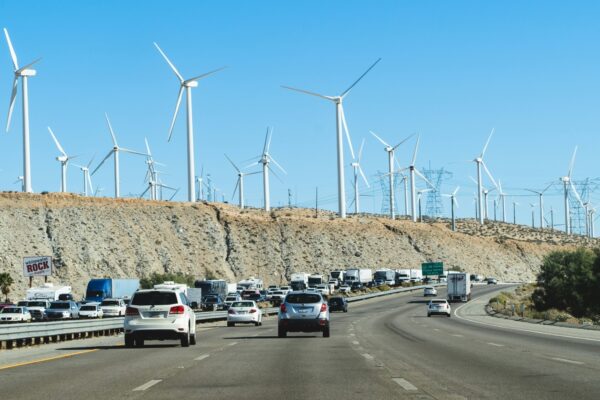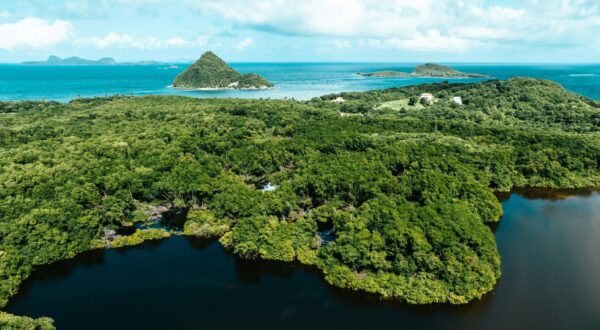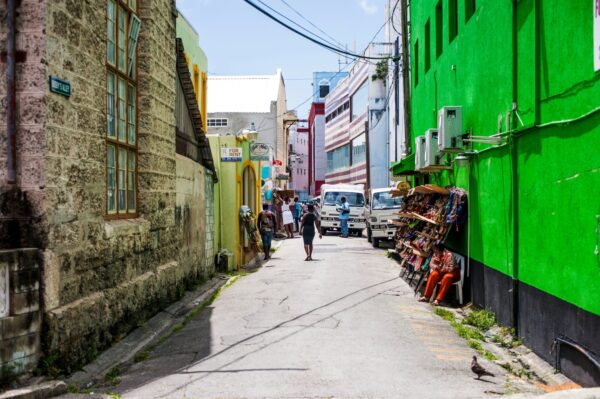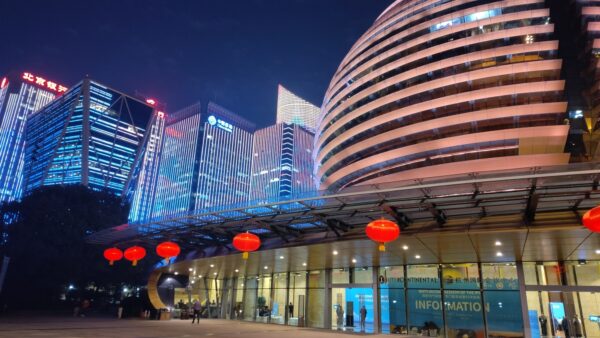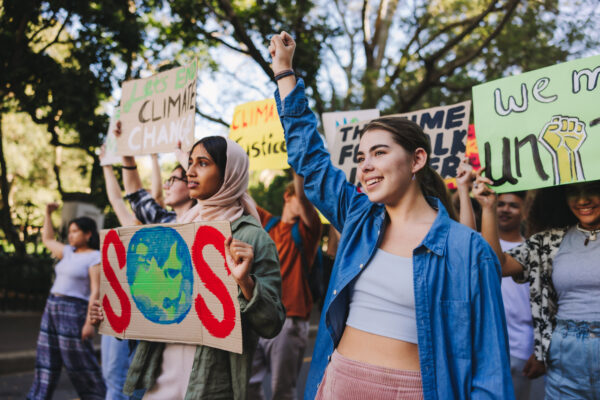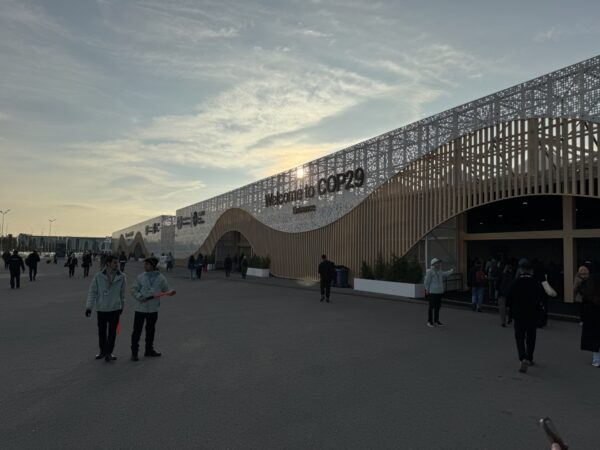A special report on system transitions would make IPCC science more actionable
Carl-Friedrich Schleussner, Christopher Trisos, Aditi Mukherji
The IPCC reporting cycle is out of step with the international climate policy process. A special report on system transitions could help make IPCC science more actionable.
Share

The Intergovernmental Panel on Climate Change (IPCC) has just completed its Sixth Assessment Report cycle (AR6) and discussions on the needs and key products of the forthcoming seventh cycle (AR7) are in full swing.
In its new cycle, the IPCC needs to navigate a rapidly changing climate discourse landscape. The world is not on track to achieve the goals of the Paris Agreement. Yet, climate action, both mitigation and adaptation, is happening worldwide on all levels of government, in industry, business and societies.
Insufficient as many of these actions still are to date, they have taken very high estimates of future global warming off the table, and we are clearly in implementation mode. Understandably, there is a growing appetite for scientific assessments in the climate solution space to understand what works, where and how.
This is the critical decade
Very significant political and investment decisions need to be taken in this critical decade that will determine the fate of the Paris Agreement and the global ambition to keep 1.5°C within reach and achieve climate resilient development. This has a number of implications for the design of the next IPCC cycle and its ambition to be policy relevant.
Firstly, a shorter cycle seems highly desirable. There is a clear need for the IPCC to align its cycle with the Global Stocktake, aiming to inform the second Stocktake (2026-2028). If it fails to do so during AR7, it would continue to be out of sync going forward. But the Global Stocktake process is really just a small part of a much bigger picture.
A wide range of policy and investment decisions will be taken before the end of this decade, including on the development of National Determined Contributions (NDCs) under the Paris Agreement setting targets up to 2040, as well as the setting of adaptation targets aligned with the outcome of ongoing discussions on the Global Goal on Adaptation, for which discussions seem to be moving towards a set of concrete targets.
These decisions need to be informed by the best available science. Enabling the IPCC to do that requires a critical reflection not just on what products to focus on (Special Reports, Methodology Reports, Assessment Reports), but also the scope and length of these reports.
Secondly, the AR6 Synthesis Report identified a portfolio of mitigation and adaptation actions across sectors and systems necessary to achieve deep and sustained emissions reductions and secure a sustainable future for all. However, there is a strong need for more actionable information in climate science and policy on the transformative changes for mitigation and adaptation that are needed to achieve systems transitions across: energy systems; cities, settlements and infrastructure; land, oceans, food and water; health and nutrition; and society, livelihoods and economies.
A focus on ‘what works,’ ‘where,’ and under ‘what enabling conditions,’ is urgently needed to inform, in concrete implementable terms, how to achieve these transitions and transformations across these key systems and sectors. One key system, urban environments, is already on the list to be covered in a Special Report in the next IPCC cycle, showing that there is demand for the type of scientific assessment that takes a system transition lens.
Crucially, implementation relevant assessments on system transitions need to integrate all dimensions of climate action, mitigation and adaptation alike. This is because there is a strong demand from policymakers to understand the co-benefits and trade-offs of mitigation and adaptation actions. In the AR6, this information was scattered across the Working Group II report on impacts and adaptation and the Working Group III report on mitigation – only the Synthesis Report provided for some integrated analysis. However, given the scope and nature of the Synthesis Report, this could only go so far.
A Special Report on System Transitions
Based on these considerations, we want to propose a report on system transitions in the upcoming IPCC Assessment Cycle (for example, a dedicated Special Report) encompassing mitigation, impacts, and adaptation-relevant information for diverse sectors and systems like cities, agriculture, health, transport and industry. Such a report, inspired by Section C.3 of the AR6 Synthesis Report, could cover elements of the AR6 Working Group III report, including energy systems, agriculture, cities and transport (chapters 5-11), and WGII report on agriculture, water, cities, infrastructure and health (chapters 3-8).
One avenue for such a report would be to extend the scope of the already envisioned Special Report on Cities to a multi-sector report. Alternatively, an additional product beyond this could be envisioned, being mindful of the time-constraints for the AR7 cycle, as outlined above. We would then recommend removing the respective chapters from the second and third working group reports, thereby allowing for shorter and more targeted assessment reports. These reports could then focus on cross-sectoral, cross-system and global pathway assessments.
Such integration across mitigation, impacts, and adaptation dimensions not only enables the development of robust, adaptable solutions but also fosters informed, comprehensive strategies in various sectors, thus allowing for the creation of climate-resilient policies that are practical and actionable, and therefore more policy relevant.
By distilling and focusing content from the original Working Group II and III reports, this approach enhances the accessibility and user-friendliness of crucial information, and meets the demand from a wide range of end-users (including national governments) on actionable information. It also encourages interdisciplinary collaboration, synthesising varied perspectives and expertise to address the multifaceted challenges posed by climate change.
Clearly, there are downsides to this suggestion that need to be carefully considered. Firstly, such a product would be quite comprehensive in scope, which might be challenging to do. However, overall such an approach would have the potential to substantially reduce the workload over the whole cycle by shortening the assessment reports, cutting redundancies and increasing cross-working group synergies, while also making the reports more user-friendly. This would build on the efforts of increased integration that had already been undertaken for AR6.
Secondly, a sectoral perspective alone can lead to inefficient responses or negative trade-offs from a society-wide or economy-wide perspective. This is in particular the case for mitigation where an integrated whole-economy perspective is crucial. Providing such a cross-sectoral, economy-wide perspective should therefore continue to be a focus of working group two and three reports. The Synthesis Report could then play an enhanced role here in truly bringing together insights from special and assessment reports that are not repetitive in content, but rather additive.
Such a system transition product could be a crucial innovation for the IPCC in its next assessment cycle, responding to the growing demand for concise, integrated and actionable climate solutions.




